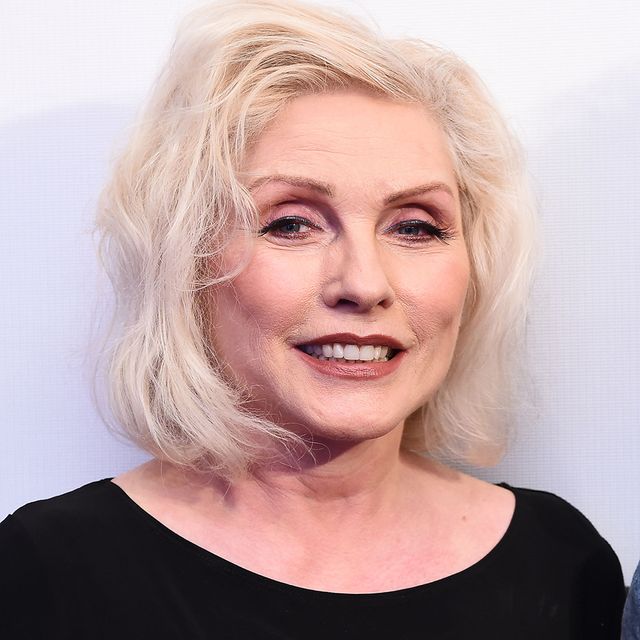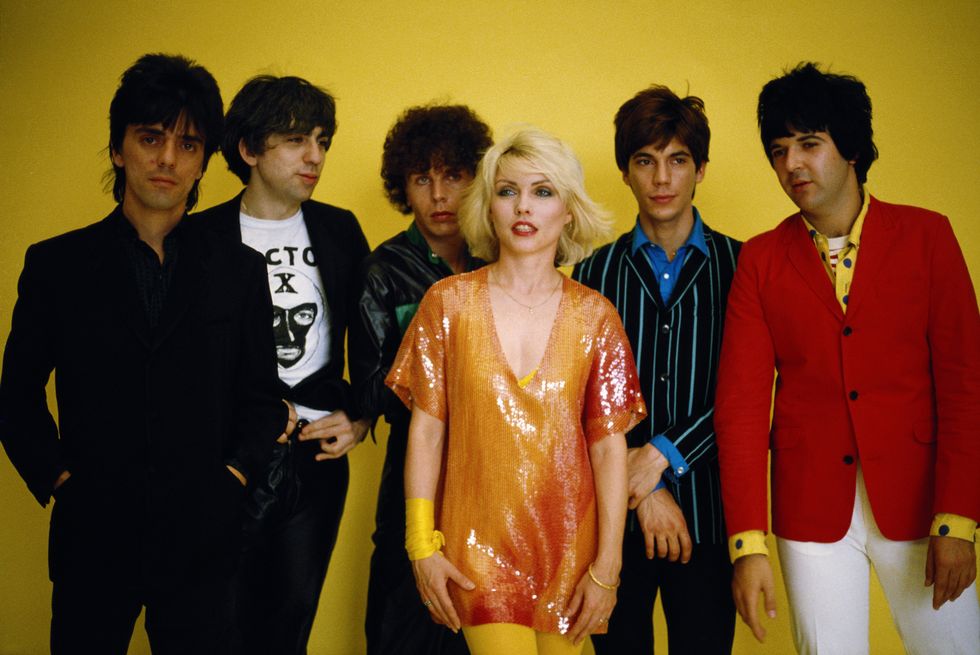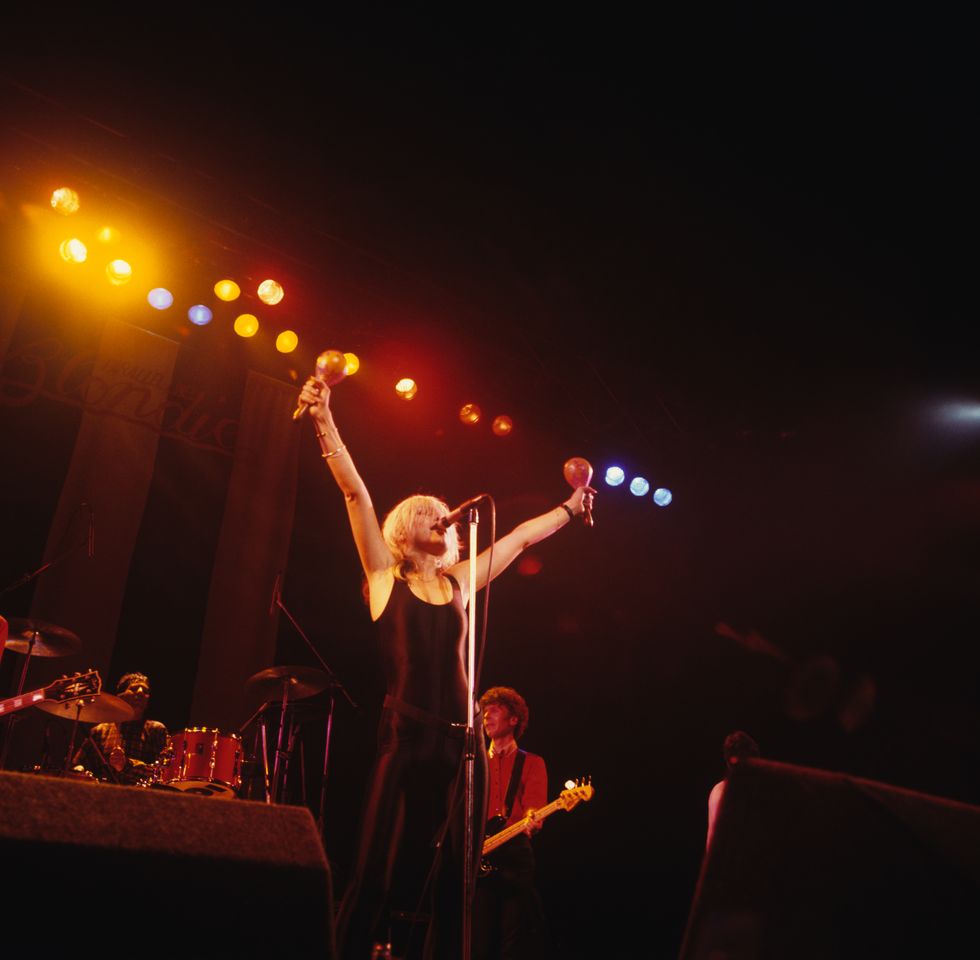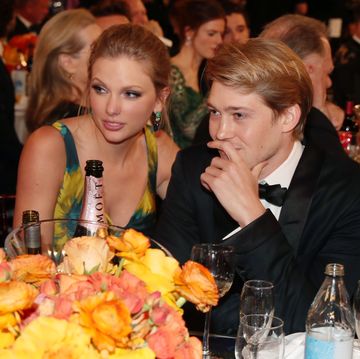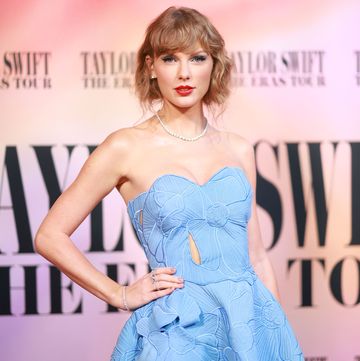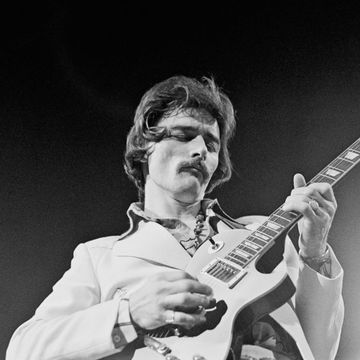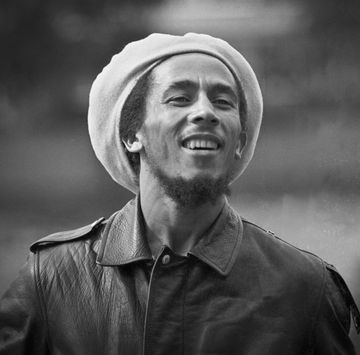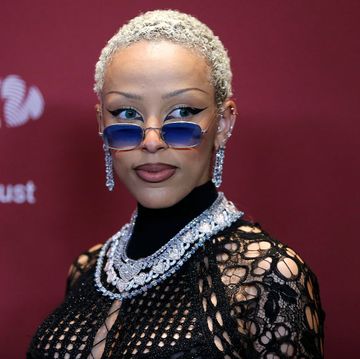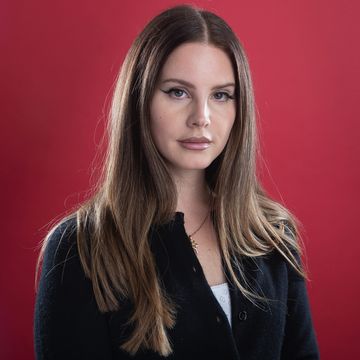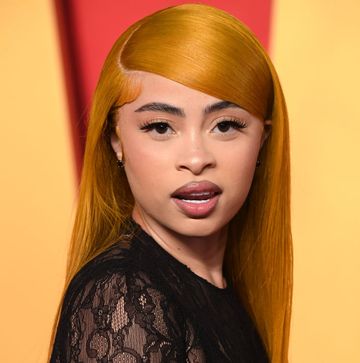(1945-)
Who Is Debbie Harry?
Debbie Harry met guitarist Chris Stein in the 1970s, and the two started a band that would later become the world-famous Blondie. Categorized as new wave (a genre of music shaped by styles that include punk, electronica, reggae and funk), Blondie eventually met commercial and critical success. The band's third album, Parallel Lines, catapulted Harry to stardom and the song "Heart of Glass" reached No. 1, later followed by other chart-toppers like "Call Me," "The Tide Is High" and "Rapture." With her musical know-how and mesmerizing aesthetics, Harry became a pop icon, influencing many female singers to come.
Background and Early Life
Debbie Harry was born Angela Tremble on July 1, 1945, in Miami, Florida, and was adopted by Richard and Catherine Harry when she was 3 months old. Growing up in Hawthorne, New Jersey, Harry sang in the church choir. She tried college for two years before dropping out and moving to New York City in the late 1960s. Having sang with the band Wind in the Willows and worked as a Playboy Bunny, Harry ended up waiting tables at Max's Kansas City, a popular club that was part of the downtown art and music scene.
Forming Blondie
Harry later joined the Stilettos, a female trio, and met guitarist Chris Stein, who became a member of the group. Over time, Stein and Harry became romantically involved. In 1974, the two started the band which would eventually be known as Blondie. The burgeoning new wave act played many of the legendary clubs in New York, including CBGB.
Blondie's self-titled debut was released in 1976. The following year, the band toured in support of their second album, Plastic Letters, which scored a No. 2 spot on the British charts with single "Denis." Over the years, Blondie would continue to be a formidable force in the U.K.
Commercial Breakthrough: 'Parallel Lines'
Blondie's third album, the critically exalted Parallel Lines, helped catapult the band to pop music stardom. The disco/glam single "Heart of Glass" reached the top of the U.S. charts in 1978, while the campy, more traditionally rock-ish "One Way or Another" became a Top 25 hit. Harry served not only as lead vocalist for the group but wrote many of its songs with Stein. With her white-blond hair, high cheekbones and commanding, cool style partially inspired by comic books and movies, Harry became a pop music icon. Harry was one of the few female recording artists to rise to the top and paved the way for later acts like Madonna.
More Hits: "The Tide Is High," "Rapture," "Call Me"
Blondie continued to be successful with the group's next albums Eat to the Beat (1979), which included "Dreaming" and "Atomic," and Autoamerican (1980), which featured two more No. 1 hits — the reggae/mariachi-influenced "The Tide Is High" and dance-rap number "Rapture." The band had also landed another No. 1 with the rock song "Call Me," a collaboration with producer/songwriter Giorgio Moroder that was featured on the soundtrack for American Gigolo (1980).
Breakup of Blondie
Blondie broke up in 1982, as around this time Stein became ill with a rare skin disease. Harry took time out from her career to look after him. He recovered and although their relationship didn't survive, the two remained friends. Harry later revealed that she has also been romantically involved with women, though her longer-term relationships were with men. The singer has pointedly spoken about desire and intimacy throughout her life via interviews and her work.
Solo Career: 'KooKoo' and 'Def, Dumb & Blonde'
Harry released her debut album KooKoo, produced by Nile Rodgers, in 1981. Another solo album, Rockbird, came forth in 1986, while her single "French Kissin'" reached the Top 10 in the U.K. Her third album, Def, Dumb & Blonde, dropped in 1989, featuring the Top 20 U.K. hit "I Want That Man." Another effort, Debravation, followed in 1993.
Switching musical styles, Harry joined the Jazz Passengers as lead vocalist for their 1997 album Individually Twisted. She then returned to the studio for her first solo album in more than a decade with 2007's Necessary Evil.
Blondie Reunited
In 1997, Harry reunited with her Blondie bandmates to tour in Europe. Their first album together in more than 15 years, No Exit, was released in 1999. The album's song "Maria" hit the top of the charts in England but wasn't received as well in the U.S.
In 2004, the group released their eighth studio album, The Curse of Blondie, featuring the Top 20 U.K. single "Good Boys." After being inducted into the Rock and Roll Hall of Fame in 2006, Blondie went on tour in 2008 to celebrate the 30th anniversary of Parallel Lines. Three years later, they released a new album, Panic of Girls.
In 2014, the band released its tenth studio album, Ghosts of Download, bundled with re-recorded versions of greatest hits. Blondie followed with Pollinator in 2017, with its lead single, "Fun," reaching the top spot on the Billboard Dance chart.
Films and TV Shows
While still riding high on the early success of Blondie, Harry found time to act in film projects like Union City (1980) and Videodrome (1983). She went on to land roles in films that included John Waters' Hairspray (1988), Heavy (1995) and Six Ways to Sunday (1997), as well as in TV series like Wiseguy and The Adventures of Pete & Pete.
In 2006, Harry appeared in the theatrical dance production The Show (Achilles Heels) and the independent film Full Grown Men. Additionally, she and her Blondie bandmates began having their music featured on popular TV series like Ghost Whisperer, Smash and Glee.
In 2015, Harry appeared on the Hulu original series Difficult People. She also began campaigning for fair pay to artists in an age of streaming, citing what she deemed a lack of appropriate compensation given to musicians/singers by YouTube.
Memoir
In August 2019, Harry made waves ahead of the publication of her memoir, Face It, with the release of a passage that recalled how she had been raped at knifepoint in her New York City apartment in the mid-1970s.
QUICK FACTS
- Name: Harry
- Birth Year: 1945
- Birth date: July 1, 1945
- Birth State: Florida
- Birth City: Miami
- Birth Country: United States
- Gender: Female
- Best Known For: Debbie Harry is a singer and actress famous for leading Blondie, a new wave band known for their U.S. No. 1 hits "Heart of Glass," "Call Me," "The Tide Is High" and "Rapture."
- Industries
- Television
- Music
- Film
- Astrological Sign: Cancer
Fact Check
We strive for accuracy and fairness.If you see something that doesn't look right,contact us!
CITATION INFORMATION
- Article Title: Debbie Harry Biography
- Author: Biography.com Editors
- Website Name: The Biography.com website
- Url: https://www.biography.com/musicians/debbie-harry
- Access Date:
- Publisher: A&E; Television Networks
- Last Updated: May 12, 2021
- Original Published Date: April 3, 2014
QUOTES
- Iconic? I guess so. But the word 'iconic' is used too frequently–an icon is a statue carved in wood. It was shocking at first, when I got that reference. It was a responsibility, and it's impossible to live up to–you're supposed to be dead, for one thing.
- ...I'm amazed by ageing and how it happens differently for different people. All I can say is, I'm a lucky f— bitch!
- At this stage of the game, a lot of it has to do with the fact that we're still doing it. That is very rewarding in itself, that we're musicians and we're working as musicians.
- I always feel like I never really stopped being or doing Blondie.
- Everything that you hear that you like, there's information, something in there that will inspire you.
- I don't really have time to really think that much about whether somebody's liking what I'm doing. I want them to like it, but my job is to make it good and to make it happen and to really put something into it.
- Most of our career, our contracts were created by the record label. We were innocent at the time but the contracts held, so that was really decisive. For some of our biggest years we were getting a very low percentage, which is unheard of nowadays.
- Fame is important so far as having an audience goes, and enduring and stuff like that. How else would you do it? So you don't complain about it.
- I’ve always felt that sex is the primary, fundamental attraction that performers bring to their performance. It’s really because of the freeing up of the sexes that things have become more explicit. If a girl does something that a man has done previously, it’s more noticeable. But I think it’s playful and fun for the most part, and people are interested in that.
- I appreciate my fans. How would I exist without them? Most of the time people are nice to me, and if I'm out without make-up and stuff, and not ready to be photographed, I just say: 'No.'
- How can one be a woman and not be a feminist? That's my question.
